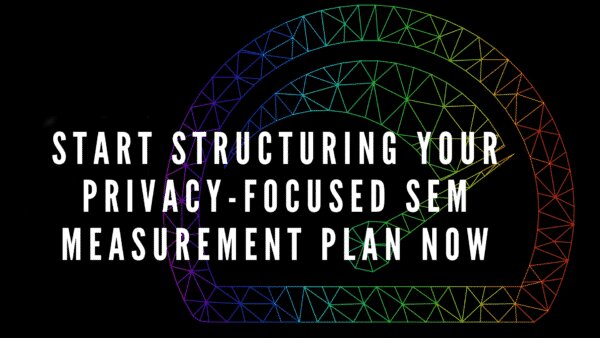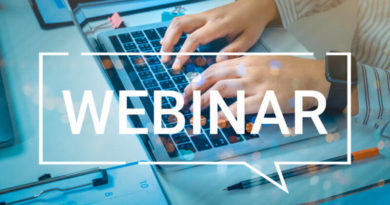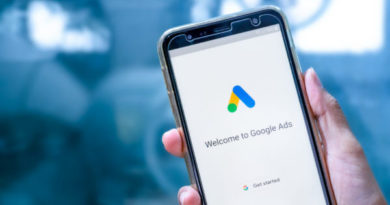Start structuring your privacy-focused SEM measurement plan now
The deprecation of third-party cookies in Chrome is fast approaching. Here’s a timeline to help you build a new measurement framework.
However, advertisers will lose critical performance signals – measurement tracking, audience management and numerous other aspects of digital marketing analysis and optimization.
With the release of Apple’s iOS 14.5 last year, the emergence of our privacy-centric age accelerated.
Now, with the impending deprecation of third-party cookies in Chrome, the dawn of our new age in digital advertising will finally arrive.
The iOS 14.5 update was a wake-up call for all digital marketers. Many advertisers are still adjusting to the change.
Forthcoming privacy updates in Chrome will usher in the new age of digital marketing simply because of its market share dominance. Here’s the breakdown of worldwide market share per web browser, according to a report by SimilarWeb:
- Chrome: 61.99%
- Safari: 22.97%
- Edge: 4.47%
- Samsung Internet: 3.32%
- Firefox: 3.1%
While this industry’s sea change has been coming to a slow swell, according to an Interactive Advertising Bureau (IAB) report, most businesses are not prepared to adjust their measurement infrastructure.
Tools within SEM can help advertisers form new methods of durable campaign performance measurement.
Now is the time to get started.
Google’s timeline for third-party cookie retirement in Chrome
Advertisers need to start building new measurement procedures now because the deprecation of third-party cookies in Chrome will be here before you know it.
Most of the available solutions require support from your development team. Last time I checked, none of those teams have a ton of extra bandwidth for new projects. You need to get on their roadmaps now.
According to the projected timeline from the Google Privacy Sandbox, the third-party cookie transition within Chrome should be, approximately:
- September/October 2022: Google will announce the transition timeline and the actual date when Chrome will retire third-party cookies.
- November 2022-April 2023: Google will provide insights and guidance for businesses to adjust to the upcoming change; they will publish playbooks and other documentation.
- May-August 2023: Google will officially retire cookies within Chrome.
I think this timeline should be approximately correct based on a few factors. Google will not make such a huge change during the holiday season in Q4. They want to ensure that advertisers have their solutions in place well before the holiday season gets started. The latest they are likely to make the change is September, but August 2023 is more likely.
Historically speaking, Google has given the industry, on average, 10-12 months to acclimate to large-scale changes. To observe this pattern, we can look at timelines for recent wide-reaching advancements within SEM for Google:
- Extended Text Ads retirement and migration to Responsive Search Ads:
- Announcement: August 2021
- Retirement/Migration: June 2022
- Adjustment time frame: 10 months
- Smart Shopping Campaigns retirement and migration to Performance Max:
- Announcement: January 2022
- Retirement/Migration: August 2022
- Adjustment time frame: 8 months
- Universal Analytics Retirement and migration to Google Analytics 4 (GA4):
- Announcement: March 2022
- Retirement/Migration: June 2023
- Adjustment time frame: 15 months
If Google announces when Chrome will retire third-party cookies in September/October with an effective time frame of July/August 2023, that will give advertisers 10-12 months to fully prepare.
This means you have to get started now.
If you work for an agency or you’re an in-house SEM manager, on the day that Google announces when third-party cookies will retire, you need to have a plan.
Your clients, your boss, and your board of directors will see this huge announcement and they will want to hear from your team. You should have, at the very least, a new measurement framework sketched out by this August.
Folks, that’s only four months away. I think I’ve had yogurt in my refrigerator longer than that (don’t judge me).
Your timeline to build a new measurement framework
Sure, the announcement might come in September, October, or even November. But that only buys you a couple of months to get ready. Let’s err on the side of caution and start making these plans now.
I already mentioned that the solutions provided by Google Ads will require development resources which takes time. Again, let’s work through your timeline:
- April-May 2022: Conduct research on which solutions will work best for your business (or your client’s business) in a cookie-less world.
- June-July 2022: Meet with your development teams to discuss the resources that will be required to support your updated measurement framework.
- July-September 2022: Your development team builds out any processes or new API connections for the measurement framework.
- September-October 2022: Hopefully, you are testing the elements of your framework. Just in time for the announcement from Google.
- October-December 2022: Your new measurement framework should be active. As a benefit, you will have year-over-year data for when cookies are completely gone.
- January-April 2023: Now you settle into a good groove of troubleshooting and building out any other support mechanisms you determined through testing.
- May-August 2023: You are ready for third-party cookies to retire.
I had a panic attack as I was writing up that list. Maybe you had one simply from reading it (if so, sorry. Take a breather).
If you already have a framework in place to deal with the loss of cookies, great! Gold star! But according to that IAB survey I mentioned at the top of the article, most of you still have a lot of work to do in a short time.
Start the research and planning phase of your new framework
As you can see, it’s time to get to work. There are already solutions in place to help build a new measurement framework after third-party cookies retire.
We’ll dive a bit deeper into those solutions in an upcoming article. If you want to get started on your research, a few of the options we’ll cover next time include:
- First-party data and offline conversion tracking
- Enhanced Conversions
- Consent Mode
- Google Analytics (GA4)
Remember, April through June should be your research time. Next time, we’ll lay out some of the options available to advertisers.
Now, remember to breathe – and then get to work. The end is nigh. Well, at the least the end of cookies.



